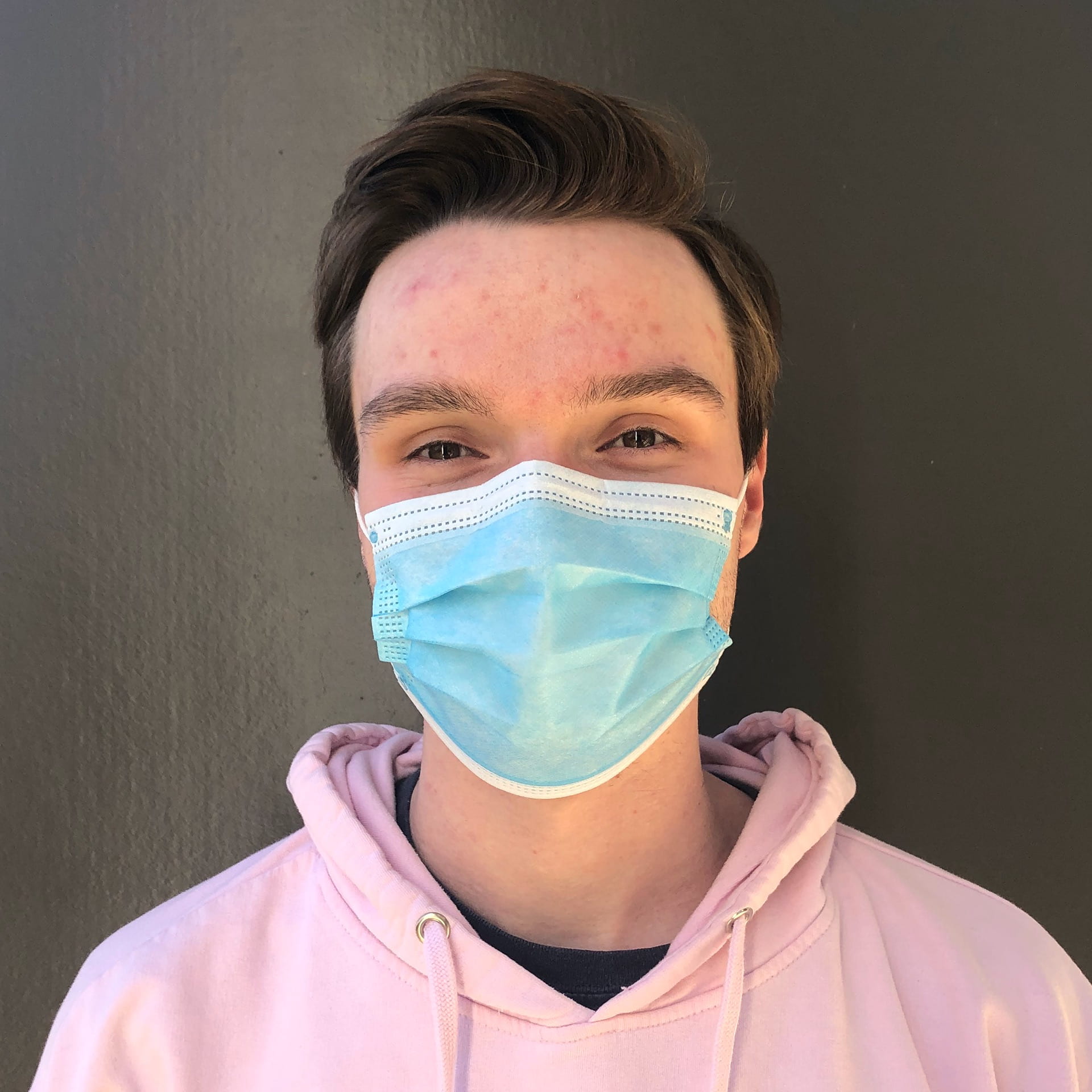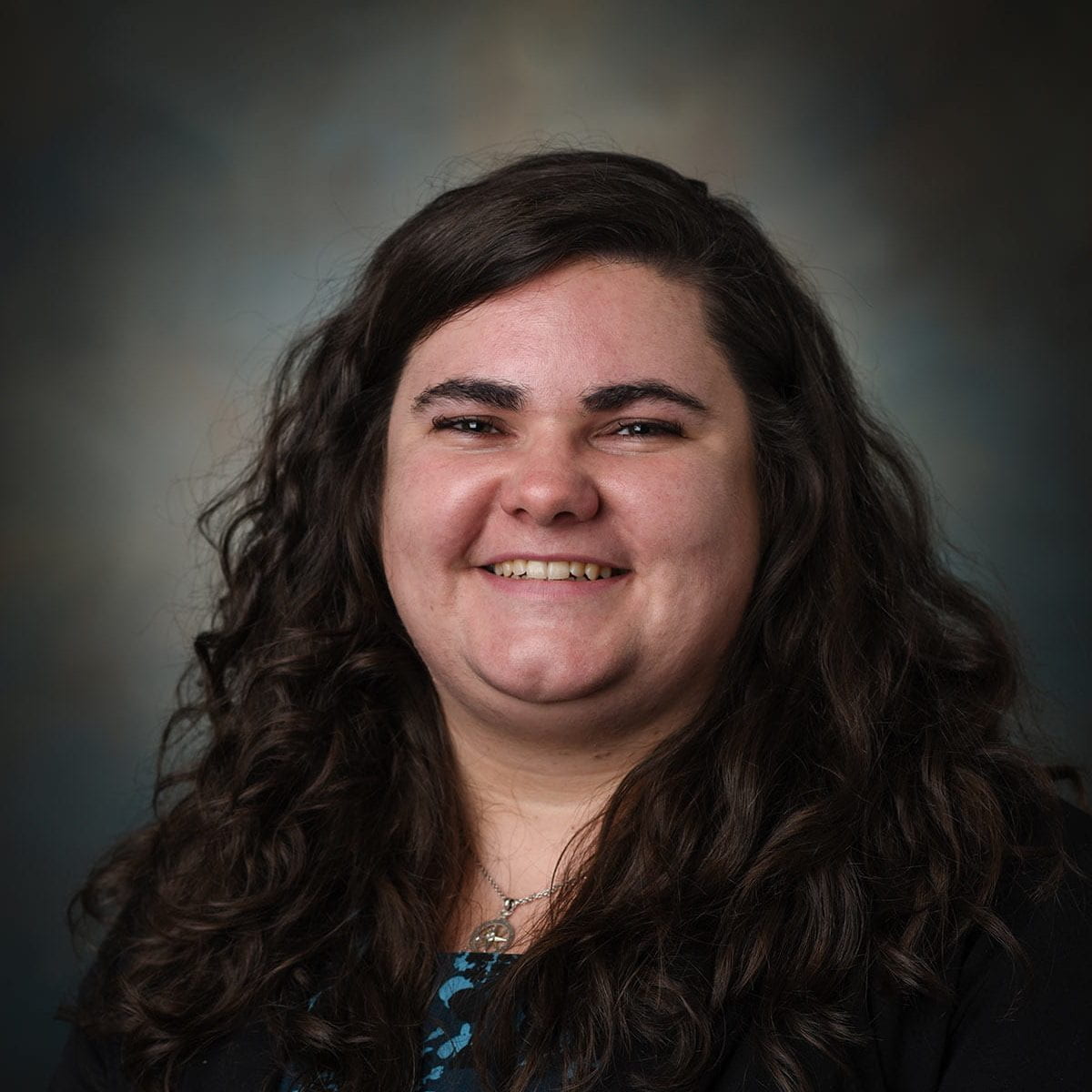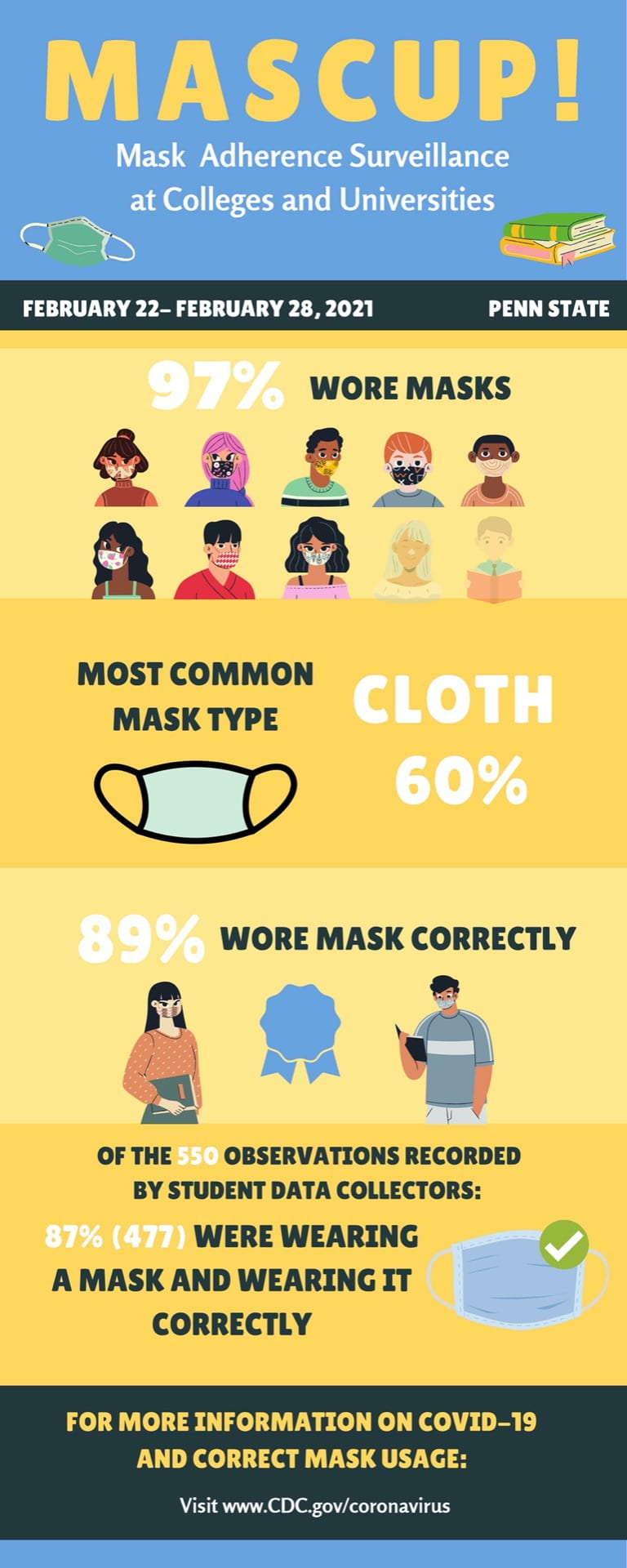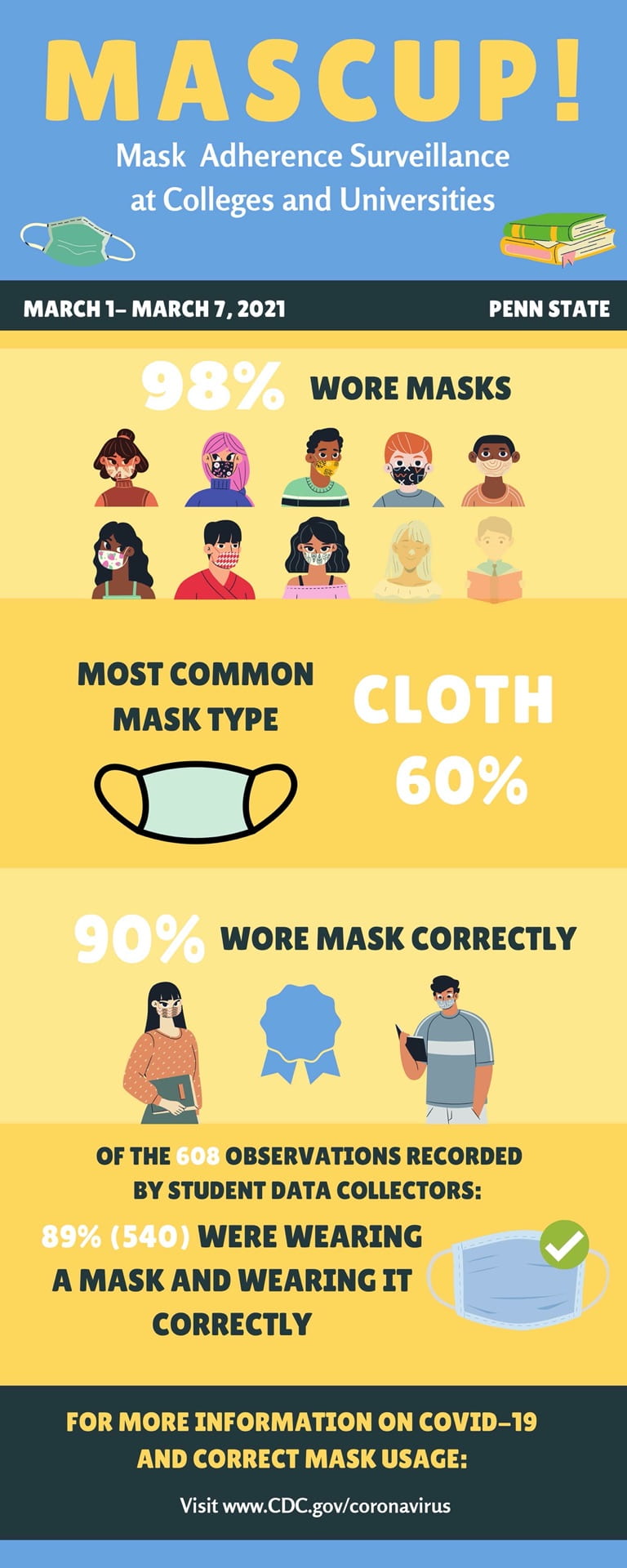
Raising awareness of public health during COVID-19
With the onset of the COVID-19 pandemic, masking and social distancing terminology and guidelines became commonplace and daily considerations for most people. According to the CDC, when someone wears a multi-layer cloth mask, up to 70 percent of fine droplets and particles are blocked from entering the environment and potentially infecting others nearby.
To better understand mask-wearing habits, the CDC teamed up with research teams at 56 institutions of higher education, including Penn State, to observe and record mask usage on college campuses throughout the spring 2021 semester. The initiative was called MASCUP! – the Mask Adherence and Surveillance at Colleges and Universities Project.
When he heard of the opportunity to collaborate on MASCUP!, Nicholas Prestayko, a senior majoring in Biobehavioral Health with a minor in Biology, joined the team of data collectors at Penn State.
“I was personally very aware of people’s mask usage when I was in public, so being part of a project that helped understand how people perceive and follow public health guidelines was really important to me,” said Prestayko. “Understanding patterns and associations within public health will help us better understand how to create positive and encouraging messaging to support it, which will in turn save the lives of people we know and love.”
Prestayko and a team of 25 other Penn State students began collecting data around campus and downtown State College. The CDC provided worksheets on which the students recorded the following about each person they observed: whether they were masking, what type of mask they were wearing, and if they were wearing it correctly. No identifying information was collected. Prestayko also assisted in entering the data into a CDC database.
%
Multi-layer cloth masks block up to 70 percent of fine droplets and particles from the nose and mouth from entering the environment, helping prevent COVID-19 exposure and spread.
Prestayko said he was surprised and impressed by the mask usage among the student population.
“From what I was hearing on the news and social media, I was expecting to see a lot of people not adhering,” said Prestayko, who first heard of the project from Elizabeth Lasher, associate teaching professor and internship coordinator in the Department of Biobehavioral Health. “But being on campus and observing people, I typically saw adherence to masking guidelines. For me, it reflected how my peers really wanted to keep everyone safe, and it encouraged me to keep going.”

Author
Mary
Campbell
In his words: Public health is about both community and individual health
Transcript
I was really inspired to participate in MASCUP! because public health is not only about community health, it’s about individual health and people’s lives. I really wanted to understand how my peers were following public health guidelines so that we could make conclusions about masking and hopefully generate messaging and support for the guidelines that had a positive impact not only on communities, but protected individuals within those communities. MASCUP! really allowed me to observe the human experience and participate in something greater than myself.
“I think it was important for students to contribute to the Penn State community in this moment, and all of the student data collectors we worked with were really committed to the health and wellness of not only our community, but people around the world,” said Lasher. “It was also an opportunity for them to take their education offline and get back out into the community, in a way that was safe and beneficial to all of us.”
Now that restrictions related to the pandemic are easing, Prestayko is looking forward to reconnecting with the community and his peers. Prior to the pandemic, he was a member of the Penn State Outing Club and enjoyed exploring Centre County. He is also looking forward to seeing his friends and professors at Penn State.
“
With my academic goals and my career, I want to be connected to the community I live in and engaged in projects that support the greater good. Part of being involved in the community is listening and trying to understand where people are coming from. I really felt like I had the opportunity to do this with the MASCUP! campaign; to observe how my peers were following public health guidelines that would lead to messaging and a response that could affect not only our community, but those around the world dealing with COVID-19.”
– Nicholas Prestayko
”
Prestayko is participating in an Integrated Undergraduate/Graduate program, which provides a pathway to earn an accelerated Master of Public Health (MPH) degree. After earning his master’s degree, Prestayko would like to be involved in a global health initiative to expand his horizons beyond the United States, and he is considering medical school.
“With my academic goals and my career, I want to be connected to the community I live in and engaged in projects that support the greater good. Part of being involved in the community is listening and trying to understand where people are coming from,” he said. “I really felt like I had the opportunity to do this with the MASCUP! campaign; to observe how my peers were following public health guidelines that would lead to messaging and a response that could affect not only our community, but those around the world dealing with COVID-19.”


Masking data from two weeks of observation at Penn State University Park during the spring 2021 semester.
Photo Credits
Photos of Nicholas Prestayko – Credit Nicholas Prestayko
Photo of Old Main in the header – Credit Penn State
Citations
MASCUP data gathered by Penn State students as part of the MASCUP! project.

Author
Mary Campbell
Discover More
Research Impact
No Results Found
The posts you requested could not be found. Try changing your module settings or create some new posts.
In the News
No Results Found
The posts you requested could not be found. Try changing your module settings or create some new posts.
Student Experience
No Results Found
The posts you requested could not be found. Try changing your module settings or create some new posts.
Health Disparities
No Results Found
The posts you requested could not be found. Try changing your module settings or create some new posts.